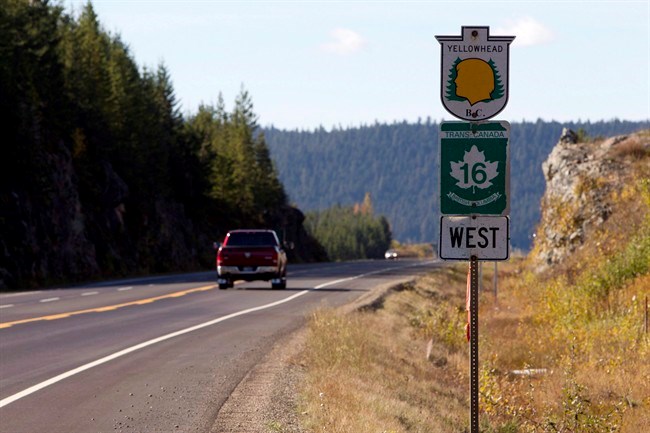Greyhound Canada will be keeping an eye on how the provincial government's plan for public transit along Highway 16 West is rolled out and will be seeking to make adjustments accordingly, the company's senior vice president said Tuesday.
Seeking permission from the provincial government's passenger transportation board to abandon passenger service along the route altogether - and focussing strictly on carrying freight - could be a possibility.
"It's something we'll have to consider absolutely," Stuart Kendrick said.
B.C. Transportation and Infrastructure Minister Todd Stone said last week buses will begin running along the 750-kilometre stretch later this year with a service fully-implemented in 2017, once schedules and fares have been set.
The idea is to provide a safe, low-cost way to travel along the corridor, known as the Highway of Tears for the number of women who've been murdered and have gone missing along the stretch.
As it stands, Greyhound offers just one return trip between Prince George and Prince Rupert each day and ridership has been low.
"We're struggling on that corridor with average loads of about 11 people per trip and you need double or more to be viable," Kendrick said.
Matters weren't helped by the introduction of Northern Health's bus service for people trying to get to medical appointments in other communities. The contract for the subsidized service was awarded to Pacific Western.
Kendrick agreed with the provincial government's decision to provide a subsidized transit service between Prince George and Prince Rupert.
"We would much prefer that subsidy be given to Greyhound or taken through an RFP [request for proposals] but relieve ourselves of any requirements to run there then," Kendrick said.
"And they're aware of that so we'll continue to have some good dialogue with them and we'll deal with it how we can."
Some $5 million in provincial and federal government funding has been committed to providing a bus service through B.C. Transit over three years.



